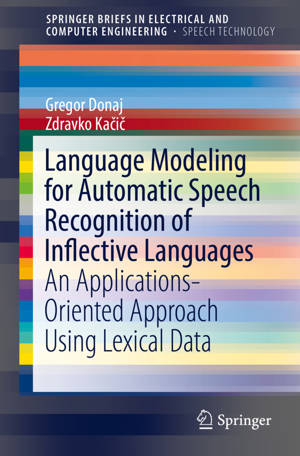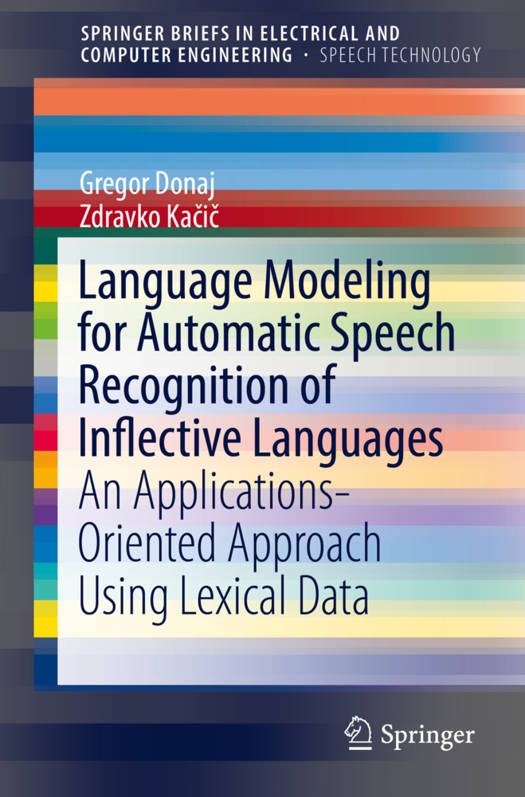
Door een staking bij bpost kan je online bestelling op dit moment iets langer onderweg zijn dan voorzien. Dringend iets nodig? Onze winkels ontvangen jou met open armen!
- Afhalen na 1 uur in een winkel met voorraad
- Gratis thuislevering in België vanaf € 30
- Ruim aanbod met 7 miljoen producten
Door een staking bij bpost kan je online bestelling op dit moment iets langer onderweg zijn dan voorzien. Dringend iets nodig? Onze winkels ontvangen jou met open armen!
- Afhalen na 1 uur in een winkel met voorraad
- Gratis thuislevering in België vanaf € 30
- Ruim aanbod met 7 miljoen producten
Zoeken
Language Modeling for Automatic Speech Recognition of Inflective Languages
An Applications-Oriented Approach Using Lexical Data
Gregor Donaj, Zdravko Kačič
€ 52,95
+ 105 punten
Omschrijving
This book covers language modeling and automatic speech recognition for inflective languages (e.g. Slavic languages), which represent roughly half of the languages spoken in Europe. These languages do not perform as well as English in speech recognition systems and it is therefore harder to develop an application with sufficient quality for the end user. The authors describe the most important language features for the development of a speech recognition system. This is then presented through the analysis of errors in the system and the development of language models and their inclusion in speech recognition systems, which specifically address the errors that are relevant for targeted applications. The error analysis is done with regard to morphological characteristics of the word in the recognized sentences. The book is oriented towards speech recognition with large vocabularies and continuous and even spontaneous speech. Today such applications work with a rather small number of languages compared to the number of spoken languages.
Specificaties
Betrokkenen
- Auteur(s):
- Uitgeverij:
Inhoud
- Aantal bladzijden:
- 71
- Taal:
- Engels
- Reeks:
Eigenschappen
- Productcode (EAN):
- 9783319416052
- Verschijningsdatum:
- 6/09/2016
- Uitvoering:
- Paperback
- Formaat:
- Trade paperback (VS)
- Afmetingen:
- 156 mm x 234 mm
- Gewicht:
- 122 g

Alleen bij Standaard Boekhandel
+ 105 punten op je klantenkaart van Standaard Boekhandel
Beoordelingen
We publiceren alleen reviews die voldoen aan de voorwaarden voor reviews. Bekijk onze voorwaarden voor reviews.











